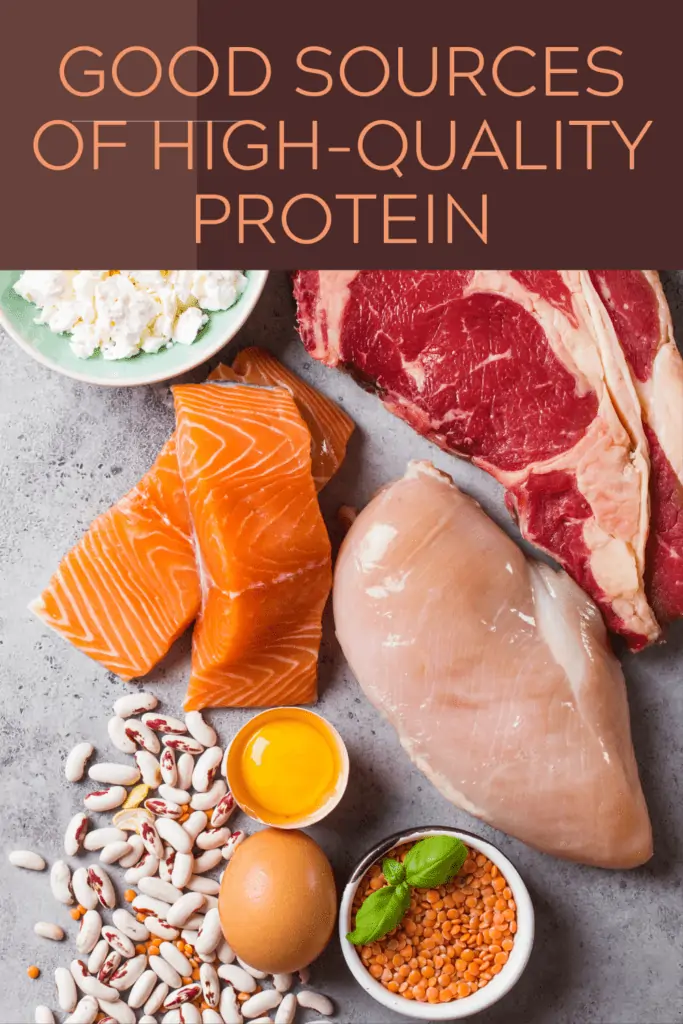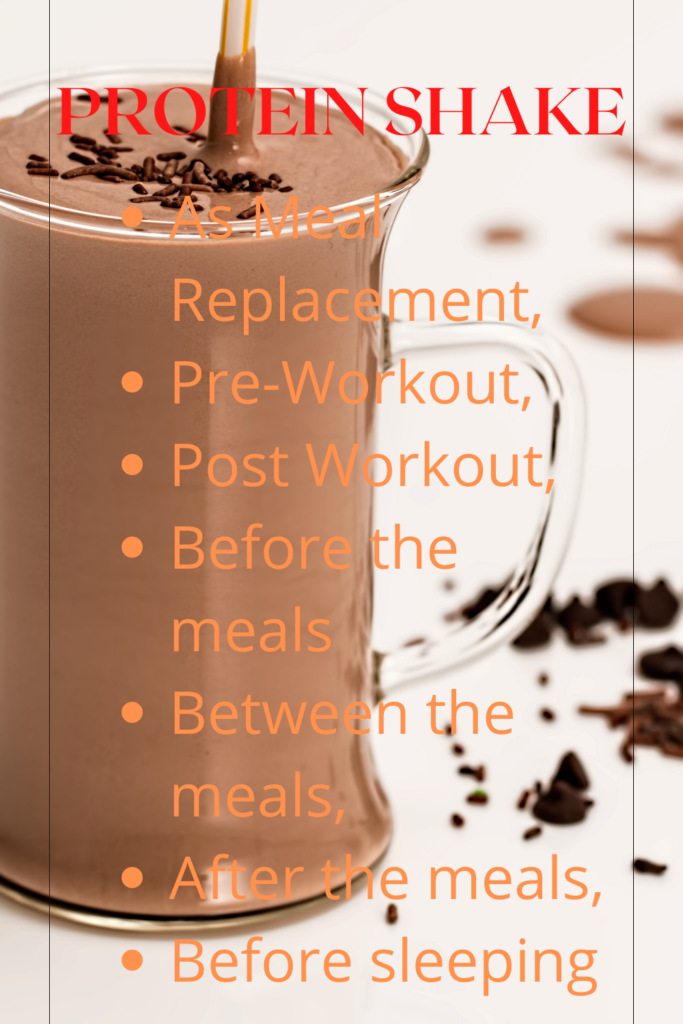We have often heard that high-protein meals seem to fill people up faster. Why does it happen? Why does protein make you feel full? What is the science behind protein making you fuller for a long time?
1. Does Protein make you feel full?
Table of Contents
High-protein meals decrease ghrelin levels, which is the body’s hunger hormone. Ghrelin increases our metabolic rate after eating and when we sleep.
Protein also increases the production of peptides in the body, a gut hormone that makes people feel fuller and satisfied for a long time. That’s why protein-rich meals help individuals feel full sooner.
2. How does your brain realize you’re full?
Another theory is that the food you consume is modified by mu-opioid receptors (MORs) on neurons in the portal vein, a large blood vessel that empties the gut. Food modulation tells your brain you’ve recently eaten. The modulation of food affects how full it makes you feel.
MORs in the portal vein instruct the brain to consume more when triggered. When MORs are blocked or turned down, the brain limits food intake, so you feel “full” after a big meal.
Cell research discovered that digested protein peptides might inhibit MORs, suppressing hunger. Protein-created peptides deliver brain messages to the stomach. The stomach is stimulated to release glucose, reducing hunger.
High-protein diets make you feel full because MORs are also in human portal vein neurons. Make protein a part of every meal to take advantage of your body’s protein-modulating reaction.
Related Readings
Does Protein Build Muscle without Workout? Only Supplements?
Vegan Diet for Belly Fat Loss & 9 Best Selling Vegan Powders
What are the good sources of high-quality protein?

Meat, poultry, fish, eggs, and dairy products like milk, cheese, and yogurt are good high-quality protein sources. Protein-packed meals make you feel full longer, so you’re not hungry shortly after a meal.
Nuts, seeds, beans, and soy products provide filling proteins. Add nuts, seeds, or beans to your salad’s protein level.
Finally, eat slowly. Food modulation takes time, so there’s a lag between eating and feeling full. Slow eating prevents overeating.
The three macronutrients impact Your body differently: fats, carbohydrates, and protein.
According to several studies, protein is the most satiating of all foods. It makes you feel fuller with less food, saving you money.
The impact of these on one’s appetite may be significant. According to one study, obese women who increased their protein consumption from 15% to 30% of total calories consumed 441 fewer calories per day despite making no other dietary changes.
If you want to reduce the amount of fat and carbohydrates in your diet, you should consider increasing the amount of protein you eat. It might be as easy as reducing the potatoes or rice you eat while increasing the fish or meat.
How to use protein to lessen hunger?
A diet high in protein may help lessen hunger, which can help you consume fewer calories. The hormones that regulate weight have become more effective at their jobs. Your inclination to munch late at night and your cravings for food decrease. A desire for food is not the same thing as ordinary hunger.

It’s not only that your body needs fuel or nourishment; your brain also wants something in exchange for its hard work. On the other hand, desires are notoriously difficult to suppress.
Increasing the amount of protein, you eat is one of the most effective preventative measures. One research conducted on overweight males found that raising the proportion of calories from protein to 25 percent reduced cravings by 60 percent and the urge to eat at night by 50 percent.
In the same vein, research on obese young women revealed that starting the day with a high-protein meal reduced feelings of hunger and the temptation to eat later in the evening.
It may be due to a shift in the functioning of dopamine, one of the brain’s primary chemicals that regulate cravings and addiction. Consuming more protein may lessen the temptation to indulge in cravings and eat snacks late at night. Even something as simple as eating a meal that’s heavy in protein has the potential to have a significant impact.
Include foods that include fat, fiber, and protein in each meal. Because of the fiber, you will feel full very immediately. The protein will help you feel full for a longer period, and the fat will interact with the hormones in your body to inform you when you have had enough to eat. Because of all three of these nutrients, including nuts in your diet is an excellent strategy to keep your weight stable.
However, the researchers indicated that those attempting to lose weight could benefit from a modest increase in the amount of protein they consume as their first step.
If these benefits last long, eating more protein could help you lose or keep weight.
How many grams of protein does it take to feel full?
Getting enough protein at each meal is essential for overall health. Having 20–30 grams of protein at each meal is recommended. Several studies have shown that this required amount of protein supports fullness and preserves muscle growth better than the smaller amount consumed throughout the day.
So, next time you plan your daily meals, remember to add the right amount of protein to keep you full and nourished for a prolonged period.
Why do protein shakes fill you up?
It is considered one of the positive effects of consuming whey protein shakes with or without workouts. Whey protein shakes fill you up for a longer time to not binge on unhealthy snacks between meals or have any food cravings.
It happens as protein acts as a satiating nutrient that kills your hunger for a prolonged period. So, when you are indulging in a high-protein diet, it gives you a high level of satiety.
Therefore, if you want to take it as a meal replacement or stick to a low-carb diet rather than eat any additional meals, protein shakes can effectively help with weight loss.
Next time, if you are worried about your sudden weight gain, switch to a protein shake to manage your weight efficiently.
Why does protein help you lose weight?
Protein helps to replace carbs and fat that aid in hunger control by boosting several satiety hormones. Therefore, the entire process helps curb or reduce hunger and aids in significant weight loss in many. It is one of the main reasons you need to add high-protein meals to your daily diet. Also, it will automatically make you eat fewer calories naturally.
So, if you are aiming for effective weight loss, indulge in foods like chicken, eggs, fish, meat, and soy to meet your daily protein needs. Make sure you meet your needs to feel full and maintain muscle mass at every meal.
Protein’s Power over Appetite
For a long time, carbohydrates and fat have played a central role in debates about what causes weight gain in our bodies. But several proven theories have shifted the spotlight to protein over the years. Further, protein has been proven to be the ‘must-have-nutrient’ that controls hunger or appetite, which helps in weight management.
A study has shown that consuming low-protein content will indulge in eating more to avoid a protein shortage. As a result, we will indulge in overeating carbs and fats. It will eventually lead to too many calories.
Protein Regulates Hunger Hormones
According to most dieticians, protein is key in improving our overall health. Most dieticians suggest having nuts or yogurt rather than binging on low-calorie biscuits.
You can get a good helping of protein meals from eggs, meats, fish, chicken, etc., that will keep you fuller, preserving, and satisfied for a prolonged period.
So, proteins are higher on the satiety scale than carbohydrates and fats of all the major macronutrients. In short, it will help to reduce hunger by keeping you fuller for longer after a meal.
Conclusion
So, adding the right amount of protein to your daily diet is important for your overall health. It delivers ample essential macronutrients and helps curb our hunger pangs regularly.
The golden rule for protein intake is to combine or eat from all the food groups, including whole grains, fruits, vegetables, healthy fats, and reduced-fat dairy. You can also indulge in foods like quinoa and soy that contain essential amino acids to make them a complete protein for your body.
Next time, if you are looking for an effective way to control hunger pangs, don’t forget to add some delicious and healthy high-protein meals to your diet.



